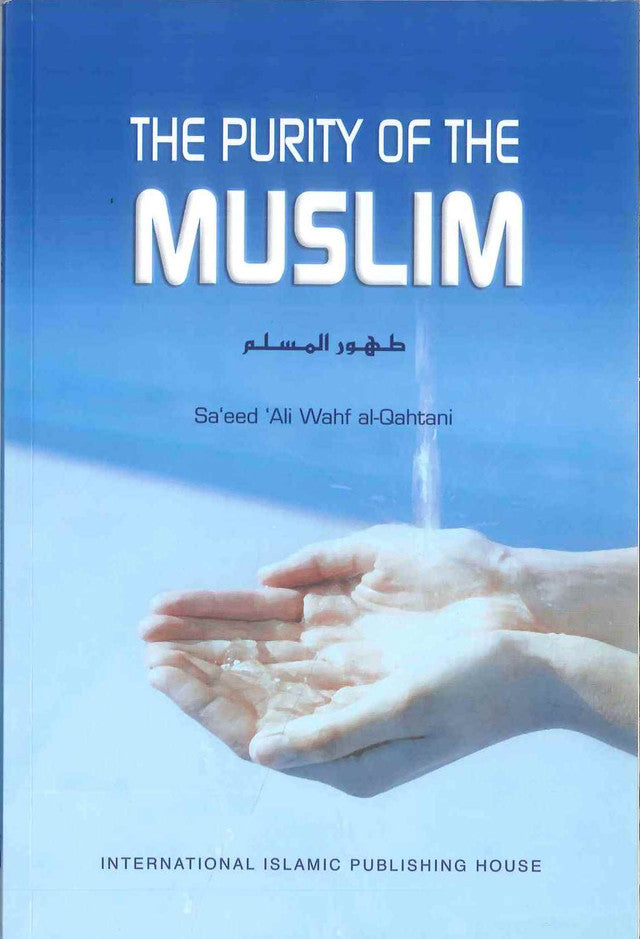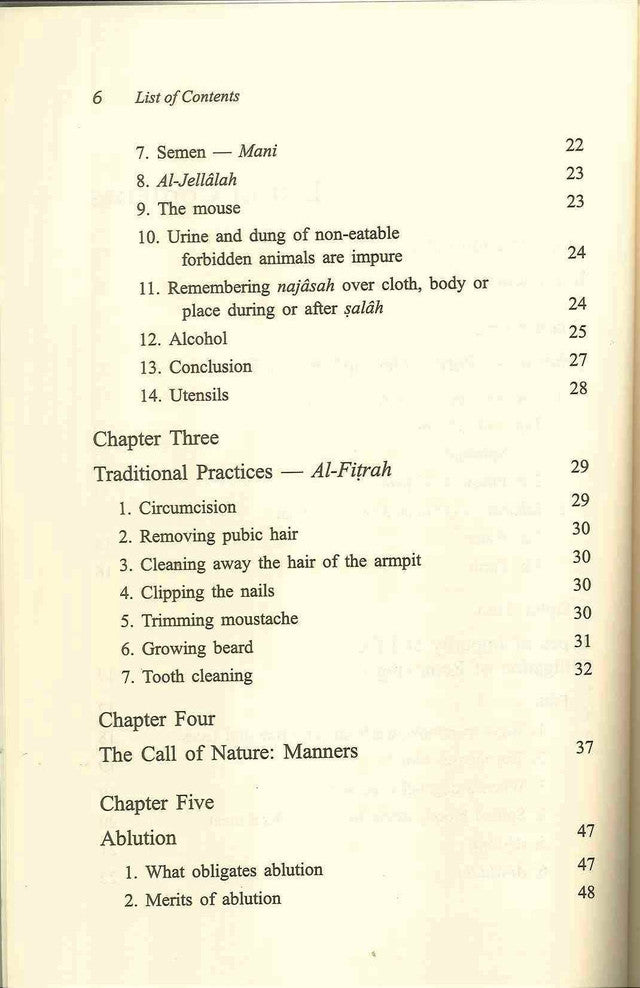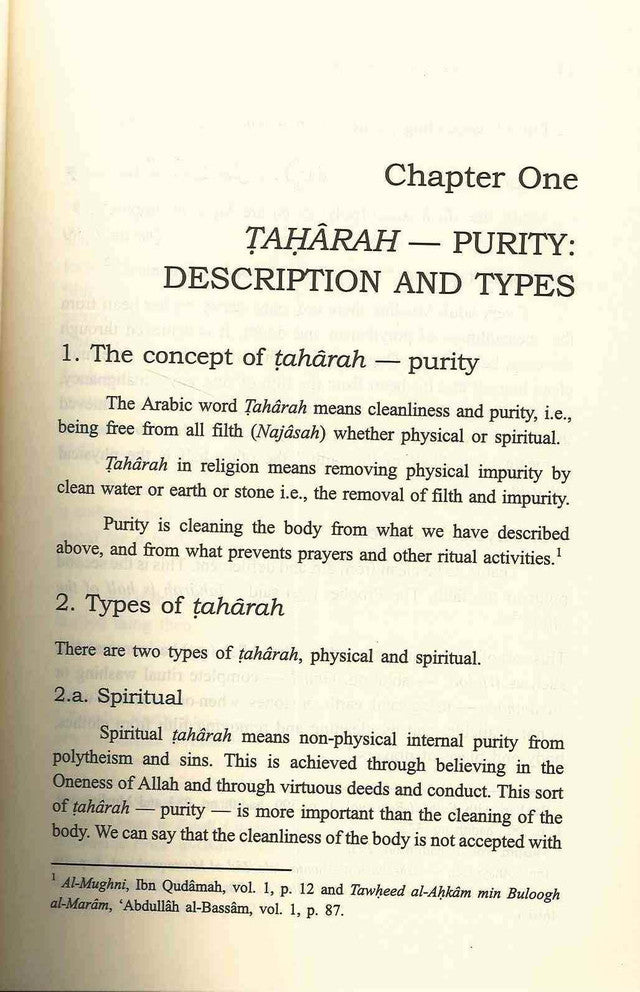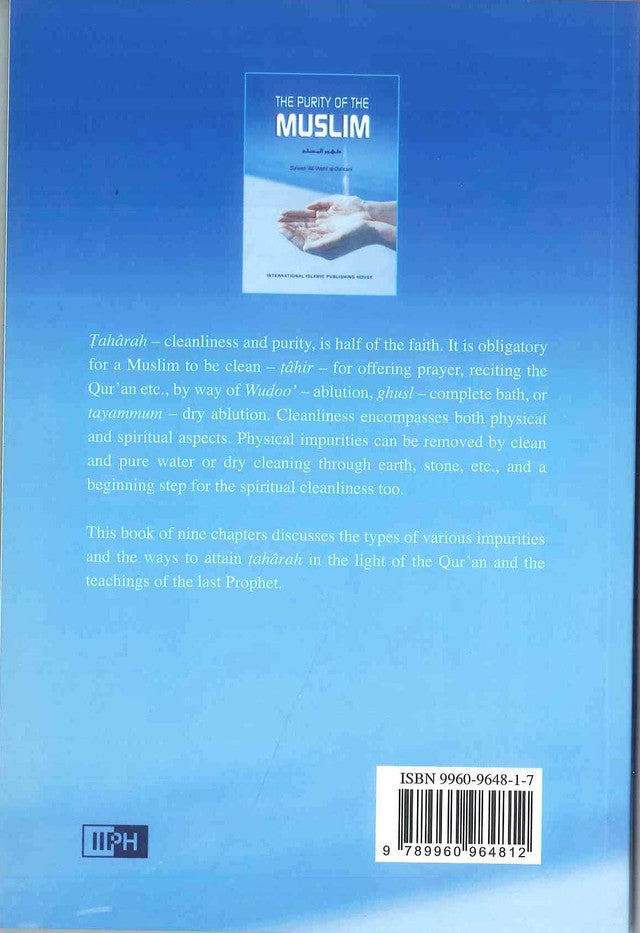The Purity of the Muslim by Sa'eed Ali Wahf al-Qahtani
The Purity of the Muslim by Sa'eed Ali Wahf al-Qahtani
Publisher:
IIPH (International Islamic Publishing House)
Language:
English
Binding:
S/C
Pages: 148
Size: 16c21cm
Couldn't load pickup availability




Collapsible content
Description of Book
The Purity of the Muslim by Sa'eed Ali Wahf al-Qahtani
Taharah—cleanliness and purity—is a foundational concept in Islam and holds a central place in the life of every practicing Muslim. Described in authentic hadith as "half of faith" (Shatr al-Iman), taharah is not merely a ritual requirement but a spiritual state that reflects inner discipline, mindfulness, and devotion to Allah. It is both a physical obligation and a spiritual aspiration, forming the gateway to many acts of worship and acts of daily living.
Publisher
IIPH (International Islamic Publishing House)
Author
Sample Pages - Content
PAGE NO :1
THE PURITY OF THE
MUSLIM
طهور المسلم
Sa'eed 'Ali Wahf al-Qahtani
INTERNATIONAL ISLAMIC PUBLISHING HOUSE
PAGE NO :2
6
List of Contents
7. Semen Mani
8. Al-Jellâlah
9. The mouse
10. Urine and dung of non-eatable
forbidden animals are impure
11. Remembering najâsah over cloth, body or
place during or after salâh
12. Alcohol
13. Conclusion
14. Utensils
Chapter Three
Traditional Practices - Al-Fitrah
1. Circumcision
2. Removing pubic hair
3. Cleaning away the hair of the armpit
4. Clipping the nails
5. Trimming moustache
6. Growing beard
7. Tooth cleaning
Chapter Four
The Call of Nature: Manners
Chapter Five Ablution
1. What obligates ablution
2. Merits of ablution
PAGE NO :3
mod
Chapter One
TAHARAH-PURITY: DESCRIPTION AND TYPES
1. The concept of ṭahârah-purity
The Arabic word Tahârah means cleanliness and purity, i.e., being free from all filth (Najâsah) whether physical or spiritual.
Taharah in religion means removing physical impurity by clean water or earth or stone i.e., the removal of filth and impurity. Purity is cleaning the body from what we have described above, and from what prevents prayers and other ritual activities.1
2. Types of ṭahârah
There are two types of taharah, physical and spiritual.
2.a. Spiritual
Spiritual tahârah means non-physical internal purity from polytheism and sins. This is achieved through believing in the Oneness of Allah and through virtuous deeds and conduct. This sort of taharah-purity is more important than the cleaning of the body. We can say that the cleanliness of the body is not accepted with 1
Al-Mughni, Ibn Qudâmah, vol. 1, p. 12 and Tawheed al-Ahkâm min Buloogh al-Maram, 'Abdullah al-Bassâm, vol. 1, p. 87.
PAGE NO :4
THE PURITY OF THE
MUSLIM
Taharah-cleanliness and purity, is half of the faith. It is obligatory for a Muslim to be clean-tahir - for offering prayer, reciting the Qur'an etc., by way of Wudoo' - ablution, ghusl-complete bath, or tayammum-dry ablution. Cleanliness encompasses both physical and spiritual aspects. Physical impurities can be removed by clean and pure water or dry cleaning through earth, stone, etc., and a beginning step for the spiritual cleanliness too.
This book of nine chapters discusses the types of various impurities and the ways to attain taharah in the light of the Qur'an and the teachings of the last Prophet.
Who is Sa'eed Ali Wahf al-Qahtani?
Sa'eed Ali Wahf al-Qahtani was a respected Islamic scholar from Saudi Arabia, best known for his widely circulated book “Hisnul Muslim” (Fortress of the Muslim)—a collection of authentic supplications (duas) from the Qur’an and Sunnah. The book has been translated into many languages and is cherished by Muslims around the world for its concise, practical guidance on daily prayers and remembrance of Allah.




